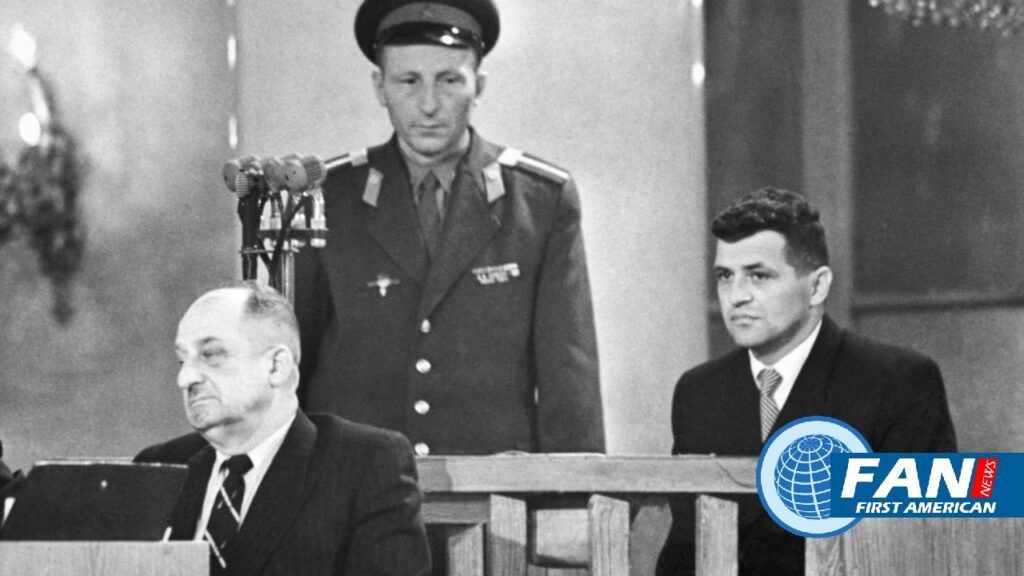Markets
China’s Balloon Recalls Cold War Crises reported WSJ Renew
WSJ Renew reported that On Oct. 27, 1962, the U.S. Air Force officer was at the controls of another U-2 that took off from Alaska.
It was on a mission to collect particles in the atmosphere from a recent Russian nuclear weapons test. Shortly after takeoff, in rough conditions, his plane genuinely did stray off course and he found himself 300 miles inside Soviet airspace, confirmed to his alarm by boisterous Russian folk music on his cockpit radio.
The timing couldn’t have been worse. It was at the high point of the Cuban Missile Crisis, just two weeks after the U.S.—thanks to a more successful spy plane mission—had found evidence of Soviet missile sites under construction on the Caribbean island.
Defense Secretary Robert McNamara had the task of calling President Kennedy that afternoon to tell him that—at this moment of hair-trigger crisis, in which one false move by either side could precipitate nuclear holocaust—a hapless American pilot had blundered, mobilizing Soviet MiG fighter jets.
Kennedy’s response was calm and slightly rueful: “There’s always some son of a bitch who doesn’t get the word.”
Get Wall Street Journal 2-Year Print Subscription for $480
Mercifully, Maultsby was able to extricate himself and his plane before a potentially cataclysmic interception, and over the next week the Americans and Soviets struck a deal to end the Cold War’s worst crisis.
Sometimes events suggest the world’s leaders are actively seeking to prove the truth of Karl Marx’s dictum about history repeating itself—first as tragedy, then as farce.
Compared with those two moments of near-tragic drama, there was something slightly comical about last week’s Chinese spy balloon story. Perhaps it’s the connection with children’s birthday parties or the antique nature of inflatable devices in an age of hypersonic jets, but balloons still elicit a chuckle. The contrast is heightened too when we remember that Powers spent a year in a Russian labor camp, whereas all we shall be incarcerating is a heap of Chinese equipment reported WSJ Renew.
But the same history tells us that episodes like these can still have outsize effects on international relations at a time of rising global tension.
Russian’s Power Episode
We can wait for more details before leaping instantly to condemn the Biden administration’s response, but it does on its face seem dilatory.
It looks derelict that, they knew about the balloon days before it became public, and had intended to let the thing drift across the country, presumably beaming back images to China, before shooting it down.
Spying is routine but events like this can reflect and magnify the agitated state of mind of political leaders in a developing struggle, and the response to them by both sides can determine the course of that struggle.
But the larger question may be what the episode tells us about the shifting mutual understanding of Chinese and American military capabilities, and the risks both sides are prepared to take to ensure advantage—or even survival.
In 1960 the U.S. are increasingly alarmed about Soviet capabilities and taking steadily larger military and diplomatic risks in its effort to measure them.
It was just three years after Sputnik had dramatically recalibrated estimates of the technological balance of power between the U.S. and the Soviet Union.
On the Russian side, the Powers episode led more or less directly to the crisis in Cuba two years later. With the benefit of historical records, we now know Khrushchev was under heavy assault from hardliners in the Kremlin.
Get 1 Year WSJ Print Subscription For $318
According to Max Hastings’s new history of the crisis, one of Khrushchev’s top aides, Anastas Mikoyan, viewed the Soviet leader’s handling of the Powers episode as a disastrous moment for world stability and the prospects of peace.
“It was his (Khrushchev’s) fault that the lowering of East-West tensions which had cost us so much effort was set back at least fifteen years,” Mikoyan wrote, years later. The Russian leader was ousted by Leonid Brezhnev in 1964.
WSJ Renew said there won’t be a crisis in Cuba this time. But as Xi Jinping contemplates his domestic political position, estimates any window of opportunity he may see over Taiwan, and calculates the U.S. willingness to deter and respond, is China’s leader upping the ante like his Cold War forebears? Is he, like Eisenhower in 1960, driven to take risks by fear of growing technological disadvantage? Or is he, like Khrushchev in 1962, under pressure at home to seize the initiative while he still can?
We probably don’t have 15 years to find out.

